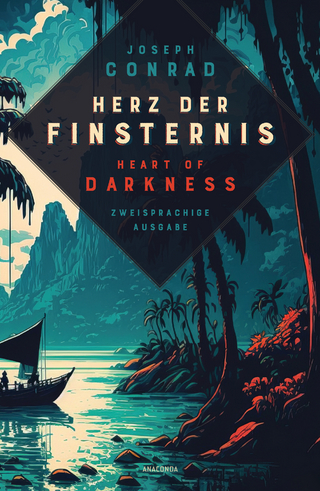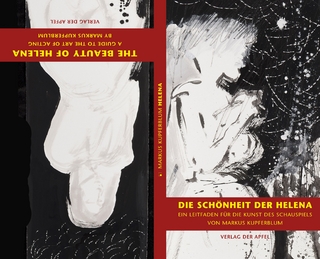
Kafka on the Shore
Vintage Books (Verlag)
978-0-307-27526-4 (ISBN)
As their paths converge, and the reasons for that convergence become clear, Haruki Murakami enfolds readers in a world where cats talk, fish fall from the sky, and spirits slip out of their bodies to make love or commit murder. Kafka on the Shore displays one of the world's great storytellers at the peak of his powers. Ein wunderbarer Liebes- und Entwicklungsroman von Japans Kultautor Haruki Murakami, voller Märchen und Mythen und schwebend zwischen Traum und Wirklichkeit.
Kafka on the Shore displays one of the world's great storytellers at the peak of his powers.
Here we meet a teenage boy, Kafka Tamura, who is on the run, and Nakata, an aging simpleton who is drawn to Kafka for reasons that he cannot fathom. As their paths converge, acclaimed author Haruki Murakami enfolds readers in a world where cats talk, fish fall from the sky, and spirits slip out of their bodies to make love or commit murder, in what is a truly remarkable journey. Dieses Buch ist der ungewöhnlichste Entwicklungs- und Liebesroman, den wir bisher von Japans Kultautor gelesen haben: zeitlos und ortlos, voller Märchen und Mythen, zwischen Traum und Wirklichkeit - und dabei voller Weisheit.
"Als mein fünfzehnter Geburtstag gekommen war, ging ich von zu Hause fort, um in einer fernen, fremden Stadt in einem Winkel einer kleinen Bibliothek zu leben. Wenn ich alles der Reihe nach erzähle, brauche ich dafür wahrscheinlich eine Woche. Wenn ich stattdessen zunächst nur die wichtigen Punkte aufführe, dauert es ungefähr genauso lange. Das klingt vielleicht wie der Beginn eines Märchens. Aber es ist kein Märchen. In keinem Sinne." Der Erzähler dieser Zeilen heißt Kafka Tamura und seine Reise führt in Wirklichkeit aus der realen Welt hinaus in sein eigenes Inneres, entlang an den Ufern des Bewusstseins. Eine schicksalhafte Prophezeiung, der Geschichte von Ödipus gleich, lenkt Kafkas labyrinthischen Weg. "Kafka am Strand" heißt das Bild an der Wand von Saeki, der rätselhaften Leiterin jener kleinen Bibliothek. Und "Kafka am Strand" heißt auch der Song aus der Zeit, als Saeki noch Pianistin war und einen jungen Mann leidenschaftlich liebte, sie waren ein Paar wie Romeo und Julia. Die Wege des Erzählers Kafka kreuzen sich auf geheimnisvolle Weise mit den ihren und denen eines alten Mannes, der die Sprache der Katzen versteht und Spuren folgt, die in eine andere Welt weisen.
Haruki Murakami was born in Kyoto in 1949 and now lives near Tokyo. His work has been translated into more than fifty languages, and the most recent of his many honors is the Yomiuri Literary Prize, whose previous recipients include Yukio Mishima, Kenzaburo Oe, and Kobo Abe. From the Hardcover edition.
Cash isn't the only thing I take from my father's study when I leave home. I take a small, old gold lighter--I like the design and feel of it--and a folding knife with a really sharp blade. Made to skin deer, it has a five-inch blade and a nice heft. Probably something he bought on one of his trips abroad. I also take a sturdy, bright pocket flashlight out of a drawer. Plus sky blue Revo sunglasses to disguise my age. I think about taking my father's favorite Sea-Dweller Oyster Rolex. It's a beautiful watch, but something flashy will only attract attention. My cheap plastic Casio watch with an alarm and stopwatch will do just fine, and might actually be more useful. Reluctantly, I return the Rolex to its drawer. From the back of another drawer I take out a photo of me and my older sister when we were little, the two of us on a beach somewhere with grins plastered across our faces. My sister's looking off to the side so half her face is in shadow and her smile is neatly cut in half. It's like one of those Greek tragedy masks in a textbook that's half one idea and half the opposite. Light and dark. Hope and despair. Laughter and sadness. Trust and loneliness. For my part I'm staring straight ahead, undaunted, at the camera. Nobody else is there at the beach. My sister and I have on swimsuits--hers a red floral-print one-piece, mine some baggy old blue trunks. I'm holding a plastic stick in my hand. White foam is washing over our feet. Who took this, and where and when, I have no clue. And how could I have looked so happy? And why did my father keep just that one photo? The whole thing is a total mystery. I must have been three, my sister nine. Did we ever really get along that well? I have no memory of ever going to the beach with my family. No memory of going anywhere with them. No matter, though--there is no way I'm going to leave that photo with my father, so I put it in my wallet. I don't have any photos of my mother. My father had thrown them all away. After giving it some thought I decide to take the cell phone with me. Once he finds out I've taken it, my father will probably get the phone company to cut off service. Still, I toss it into my backpack, along with the adapter. Doesn't add much weight, so why not. When it doesn't work anymore I'll just chuck it. Just the bare necessities, that's all I need. Choosing which clothes to take is the hardest thing. I'll need a couple sweaters and pairs of underwear. But what about shirts and trousers? Gloves, mufflers, shorts, a coat? There's no end to it. One thing I do know, though. I don't want to wander around some strange place with a huge backpack that screams out, Hey, everybody, check out the runaway! Do that and someone is sure to sit up and take notice. Next thing you know the police will haul me in and I'll be sent straight home. If I don't wind up in some gang first. Any place cold is definitely out, I decide. Easy enough, just choose the opposite--a warm place. Then I can leave the coat and gloves behind, and get by with half the clothes. I pick out wash-and-wear-type things, the lightest ones I have, fold them neatly, and stuff them in my backpack. I also pack a three-season sleeping bag, the kind that rolls up nice and tight, toilet stuff, a rain poncho, notebook and pen, a Walkman and ten discs--got to have my music--along with a spare rechargeable battery. That's about it. No need for any cooking gear, which is too heavy and takes up too much room, since I can buy food at the local convenience store. It takes a while but I'm able to subtract a lot of things from my list. I add things, cross them off, then add a whole other bunch and cross them off, too. My fifteenth birthday is the ideal time to run away from home. Any earlier and it'd be too soon. Any later and I would have missed my chance. During my first two years in junior high, I'd worked out, training myself for this day. I started practicing jud
| Erscheint lt. Verlag | 28.4.2011 |
|---|---|
| Reihe/Serie | Vintage International |
| Verlagsort | New York |
| Sprache | englisch |
| Maße | 107 x 175 mm |
| Gewicht | 238 g |
| Themenwelt | Literatur ► Romane / Erzählungen |
| Literatur ► Zweisprachige Ausgaben ► Deutsch / Englisch | |
| Schlagworte | Englisch; Romane/Erzählungen |
| ISBN-10 | 0-307-27526-4 / 0307275264 |
| ISBN-13 | 978-0-307-27526-4 / 9780307275264 |
| Zustand | Neuware |
| Haben Sie eine Frage zum Produkt? |
aus dem Bereich


